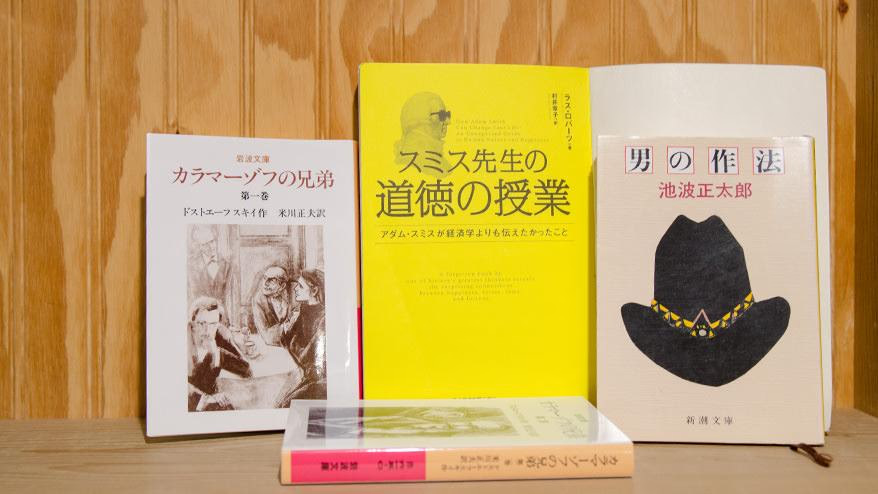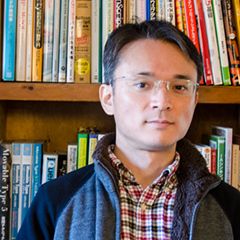こんにちは。図書委員の村上です。
すっかり暑くなり、夏本番ですね。
暑さがピークの8月も目前。夏休みをとる人も多いのではないでしょうか?
今回は、そんなちょっと時間のとれる夏に読みたい「自分的課題図書」をテーマに読書会です。
発表タイム
40分間の読書タイムを終えたら、ひとり5分間でその本を紹介します。
-
経済学の父が語る「道徳」とは?
ラス・ロバーツ(著)『スミス先生の道徳の授業 ―アダム・スミスが経済学よりも伝えたかったこと』(紹介者 乾 椰湖) -
ロシアの超大作に再チャレンジ
ドストエーフスキイ(著)『カラマーゾフの兄弟』(紹介者 村上 伊左夫) -
色褪せない、粋な生き方。
池波 正太郎(著)『男の作法』(紹介者 羽賀 敬祐)
経済学の父が語る「道徳」とは?
『スミス先生の道徳の授業 ―アダム・スミスが経済学よりも伝えたかったこと』 (紹介者 乾 椰湖)
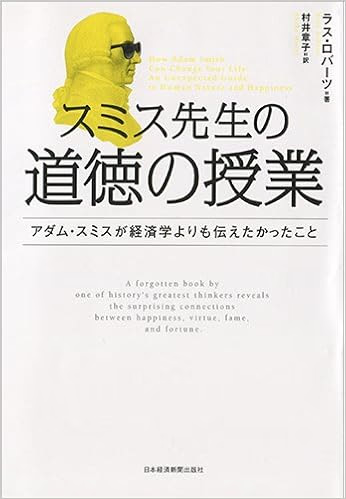
ラス・ロバーツ(著)、村井 章子(訳)『スミス先生の道徳の授業 ―アダム・スミスが経済学よりも伝えたかったこと』 日本経済新聞出版社 (2016/2/25)( Amazon )
-
 乾
乾 -
『スミス先生の道徳の授業 ―アダム・スミスが経済学よりも伝えたかったこと』を持ってきました。スタンフォード大学のラス・ロバーツという、経済学の先生が書いた本です。
アダム・スミスは「近代経済学の父」と言われる経済学者で、『国富論』と『道徳感情論』という2冊の本を出しています。『国富論』は有名ですが、処女作である『道徳感情論』の方は名前も知らない人が多いようで、著者も、読んだことがなかったとか。でもある時、『道徳感情論』をテーマに対談をすることになって、そのために渋々読んだら、予想以上に面白くて「すごい、この本をみんなが知らないのは勿体無い!」という思いから、この本を書いたそうです。
アダム・スミスって、私も受験勉強のときに知って、経済学の人という認識程度だったので、“ スミス先生の道徳 ”って一体どんなことが書いてあるんだろうと思って買いました。今、4分の1くらい読んでるんですけど、なかなか難しいです。2、3回読めば、段々わかるだろうなと思うんですけど(笑)。
内容は、「自分を知るには」「幸福になるには」「自分を騙さずに生きるには」「愛されるには」「愛されるに値する人間になるには」「良き人になるには」「世界をより良いところにするには」…などの全10章からできています。道徳っぽいですよね(笑)。
夏の課題図書にぴったりだなと思うので、がんばって引き続き読みたいと思います!
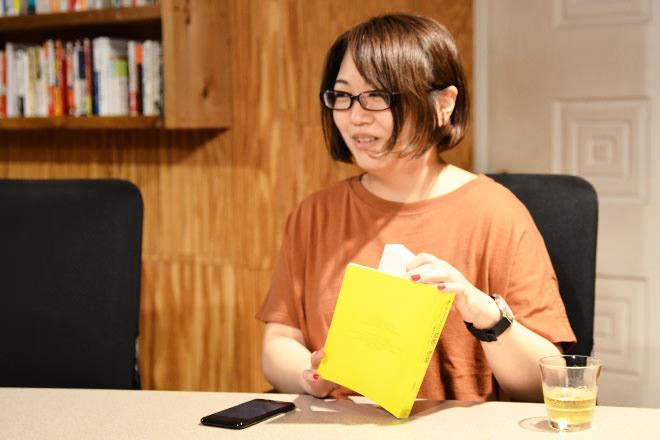
-
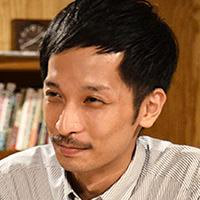 羽賀
羽賀 -
道徳って何かぼや〜っとしたイメージがあるんですけど、面白いと思った章はありますか?
-
 乾
乾 -
3章の「幸せになるには」までしか読んでないんですが、「真に高潔で誠実な尊敬すべき人間になることによって、正当に他人の評価を勝ち得た時、人は幸福になる」と書いてあるんです。スミス先生の言う、愛され、かつ愛されるに値する人間であることって、要するに、他人が見た自分と自分が見た自分との間にずれがないということで、取り繕えないんだなって思って。
「自分を知るには」の章にも書いてあるんですけど、すごく悪いことをして、それを隠して他の人達に評価を得ても、自分はそれを知ってるから満足は得られない、ともあって。自分が一番わかってるから騙せないんですよね。日々の行いをちゃんとして生活をしよう、と思いつつ読んでます。
-
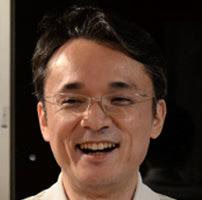 村上
村上 -
アダム・スミスがこういうことを書いているのは意外ですね。
-
 乾
乾 -
そうなんです、全然お金っぽい話が今のところ出てこない(笑)。哲学が好きな人が読んでも面白いと思います。
ロシアの超大作に再チャレンジ
『カラマーゾフの兄弟』(紹介者 村上 伊左夫)
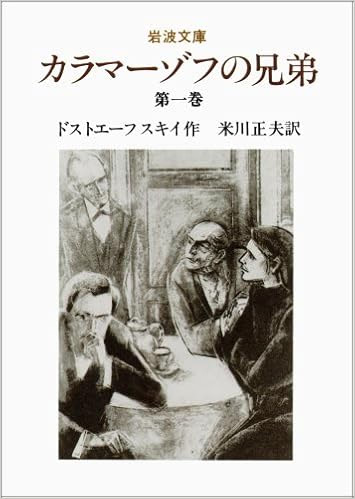
ドストエーフスキイ(著)『カラマーゾフの兄弟』岩波書店 (1957/2/5)( Amazon )
-
 村上
村上 -
ドストエフスキーの『カラマーゾフの兄弟』です。中高生の頃に読もうとしたんですが、難しすぎて挫折しちゃったので、夏休みに腰を据えて読んでみようと思ってます。
兄弟の父親フョードルは地主なんですが、ちょっと変わった人で自由奔放。3兄弟は、長男で気性が激しいドミートリイ、無神論者でロジカルな次男のイヴァン、三男は信心深いアレクセイです。
父親と長男ドミートリイは同じ女性を取り合ったりと仲が悪く、あるときドミートリイは父親殺しの疑いで捕まり、裁判にかけられることになります。兄弟の恋人たちの関係や、三男アレクセイがかつていた修道院の長老と次男イヴァンとの無神論についての話があったり。主人公は三男のアレクセイみたいですが、さまざまな要素が盛り込まれています。
私もまだ読み始めたばかりなので、物語がどう展開していくのか楽しみです。
いわゆる名作の良いところは、人間描写が深いところまで描かれているところだと思います。難しい表現も多いんですが、よく読み込むと理解できる。わからなくてそのまま読み進めちゃうことも多いですけどね(笑)。学生の頃は、読んだ本の登場人物を自分に投影したりしていたなぁと。社会人になって随分経ちますが、改めてそういう体験ができたらいいなと思っています。
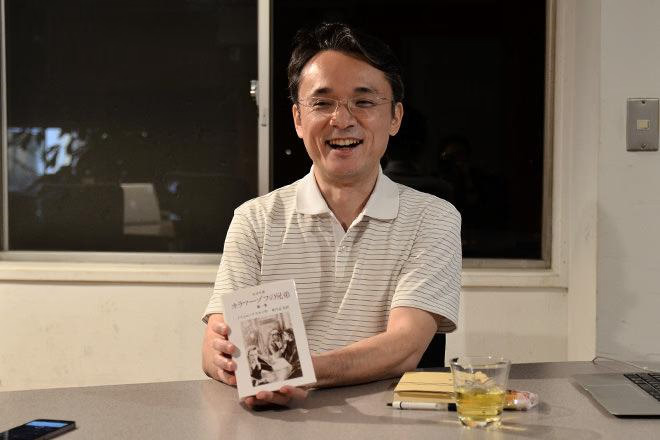
-
 羽賀
羽賀 -
ドストエフスキー、読んでみたいんですけど、圧倒的な量の多さになかなか一歩踏み出せないところがあって…。
-
 村上
村上 -
一度入りこむとすごく面白いですよ。物語が重層的でいろいろな見方が出来るし、裁判物、恋愛小説ともとれるし、信仰に関わる部分もあって、宗教的な観点から読むこともできます。文庫は全4巻で、物語自体も4部くらいに分かれていているようです。
-
 乾
乾 -
どれくらいで読み切る予定ですか?
-
 村上
村上 -
1時間に 40〜50ページとして、1巻400ページ、4冊で40時間くらいかな…。
-
 乾
乾 -
すごい!何十時間も読もうと思わない(笑)。
-
 村上
村上 -
そこは…昔とった杵柄というか(笑)。最近なかなか時間が取れなかったので、夏の課題図書としてチャレンジしたいと思います。
色褪せない、粋な生き方。
『男の作法』(紹介者 羽賀 敬祐)
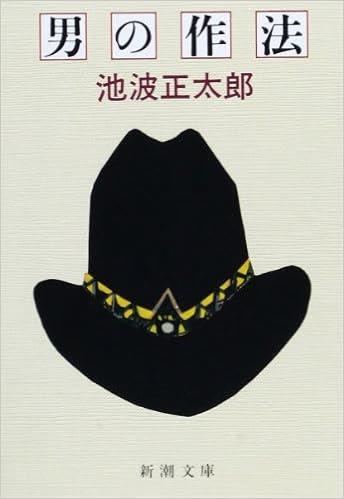
池波 正太郎(著)『男の作法』新潮社(1984/11/27)( Amazon )
-
 羽賀
羽賀 -
『鬼平犯科帳』や『剣客商売』などで有名な池波正太郎さんが書いた『男の作法』を持ってきました。池波さんの考え方や生き方が、2、3分で読めるエッセイのような形にまとめられていて、例えば、寿司屋などの高級店に行ったときの振る舞い方、身につけるもの、日常の過ごし方など、幅広い内容が書かれています。
1923年生まれの池波さんが、この本を書いたのが 1981年(58歳)の時。まえがきに「古い人間だし、ここに書いたことが、現代に合っていない部分もあるかもしれない」とあるんですけど、全然そんなことなくて。今読んでもすごくためになる。表面的なことではなく、もうちょっと深いことを言っている気がします。
たとえばビールの飲み方。瓶ビールを小さいコップに入れて飲むのは、冷たいビールを美味しい状態でグッと飲み干すためなので、途中で注ぎ足すのはナンセンスだと。
「キザ」なのではなく、背景にある理由もさらっと教えてくれて。色んな分野でちゃんとこういうことができたら、素敵な大人に一歩近づけるんじゃないかなって思いながら読んでます。まだ全然何もできてないですけど(笑)。
あ、ひとつありました。刺し身を食べるときに、わさびは醤油に溶かさず魚の上に乗せて食べること。こうすると山葵の香りをちゃんと楽しめるんです。
自分にとって「あるべき姿を教えてくれる一冊」ですね。今回のテーマは夏の課題図書ですけど、夏と言わず、死ぬまでの課題図書にしたいなと思ってます(笑)。
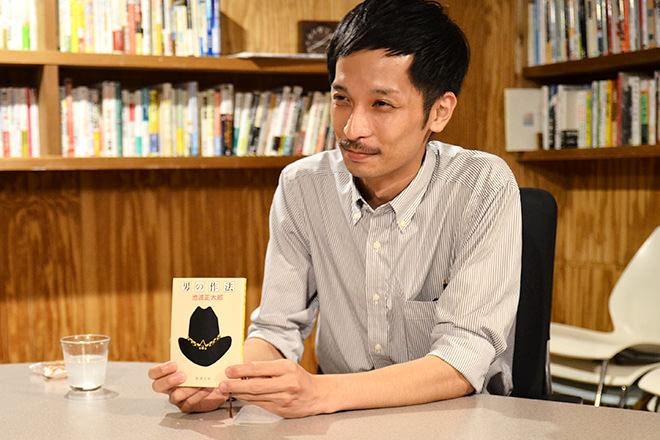
-
 村上
村上 -
粋な生き方というか。
-
 羽賀
羽賀 -
池波さんは浅草出身の江戸っ子で。そういう、江戸っ子的な、粋な心のある人なんだと思います。
-
 村上
村上 -
食に関することが多いですか?『剣客商売』にも、美味しそうな料理がよく出てきますよね。(私は一度、時代小説について記事を書いています)
-
 羽賀
羽賀 -
そうですね。お酒や寿司、天ぷら、バーの話とか。あと、スーツや眼鏡などの、ファッションのことも書いてるし、男と女に関することや心遣いに関することもあります。
天ぷら屋に行くときは腹をすかせていかないといけない。で、出てきたそばからかぶりつくようにして食べる。というのも好きな話です。その方が料理人も喜ぶし、一番美味しい状態で料理も食べられる。と。考えてみればシンプルなことですが、意外と実践出来てないなぁと思いますね。
-
 村上
村上 -
そういうことを教えてくれる人って、なかなかいないですよね。
読書会をおえて
経済学者が語る道徳と、生粋の江戸っ子が語る粋な生き方。そして再チャレンジの超大作の物語。それぞれの「課題」に取り組む夏になりそうです。
夏休み。日常を離れて、自分の課題に時間を忘れて取り組むのもよいリフレッシュになるのではないでしょうか。
来月は一年ぶり、漫画夜話です。お楽しみに!
